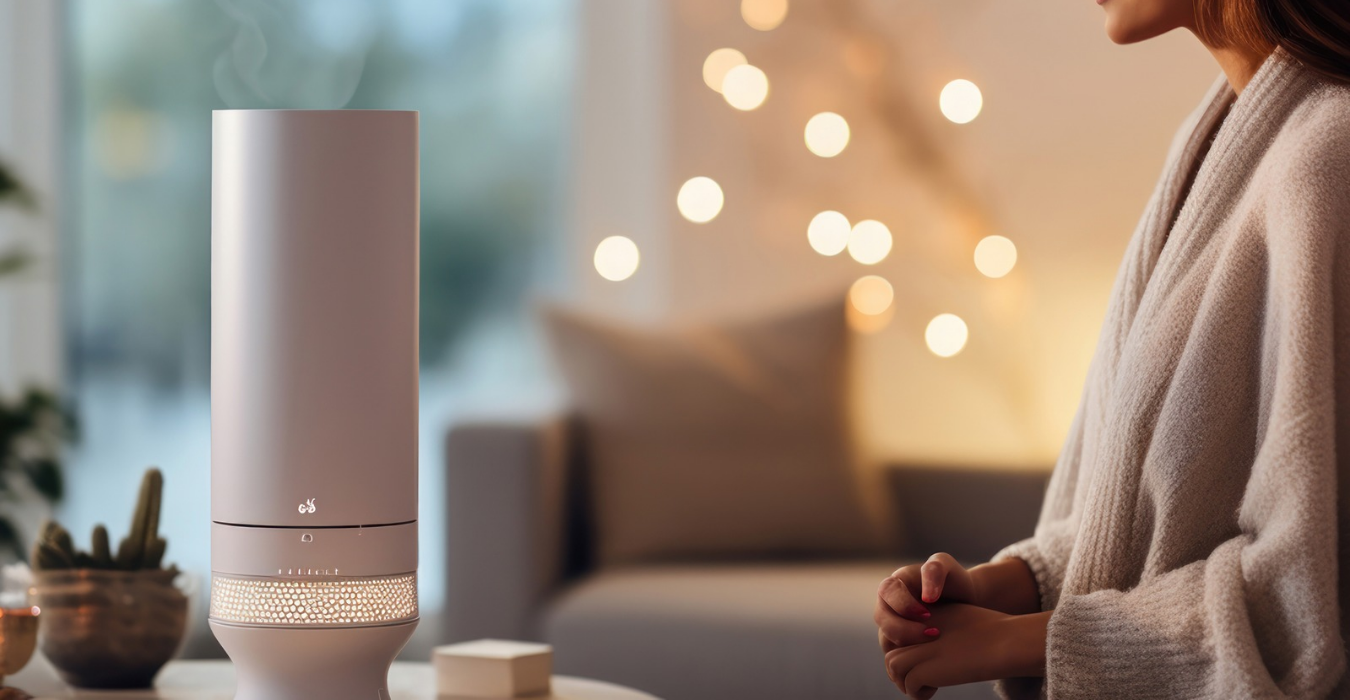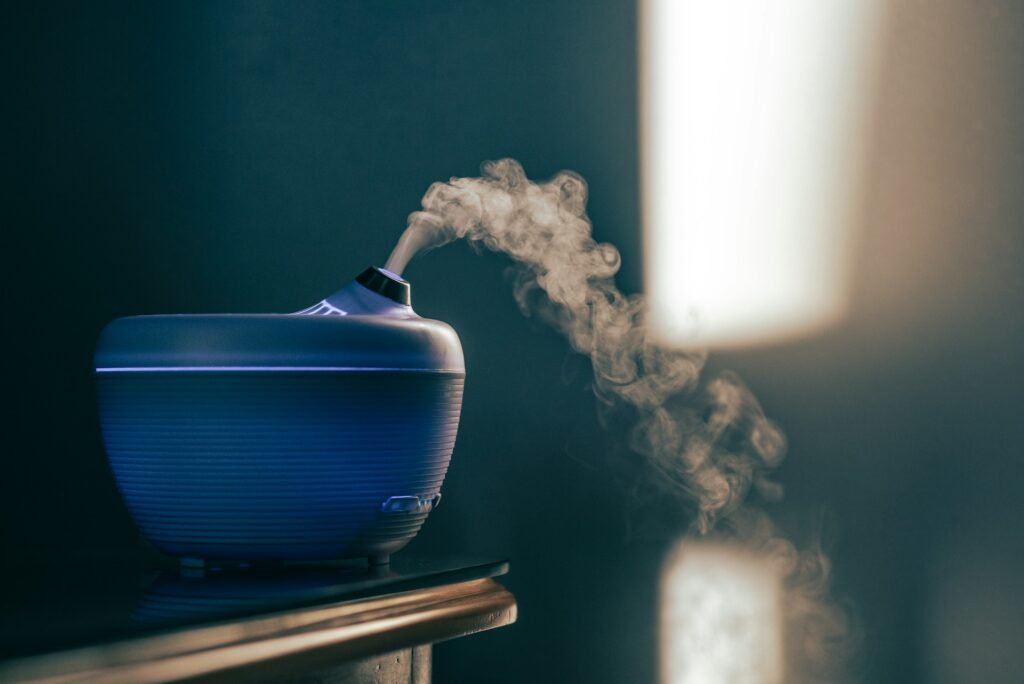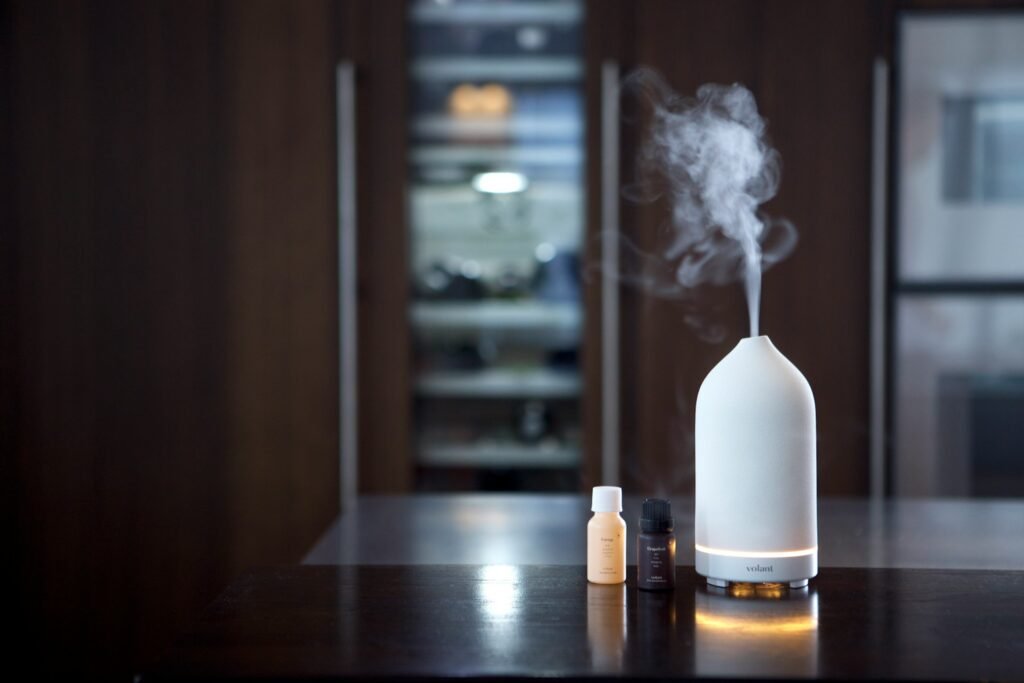Blog
Breathe Better, Live Brighter: The Surprising Benefits of Using a Humidifier

Ahh, dry winter air — the invisible menace behind itchy skin, cracked lips, and that annoying scratch in your throat that makes you question your entire immune system. While central heating keeps us toasty, it also sucks the moisture right out of our homes and our bodies. But guess what? A simple, often overlooked device can change your entire indoor atmosphere: the humidifier.
In this post, we’re diving into the underestimated magic of humidifiers, why your chakras (and sinuses) will thank you, and how these humble little machines can help you breathe easier, sleep deeper, and live healthier — all while protecting your furniture, skin, and sacred peace.
🌿 Why Moisture Matters: The Silent Benefits of Humid Air
Most of us don’t think twice about indoor humidity — until we’re sneezing, sniffling, or waking up feeling like a tumbleweed rolled across our face.
Here’s why healthy humidity matters:
✦ It keeps your respiratory system hydrated
✦ It helps your skin retain moisture
✦ It soothes irritated eyes, sinuses, and throats
✦ It prevents your plants and wooden furniture from cracking
✦ It boosts your body’s ability to fight off viruses

🔮 Top Benefits of Using a Humidifier
Let’s take a deeper, steamier look at how humidifiers bless your home and body:
1. ✨ Relieves Dry Skin and Irritation
Winter air + indoor heat = parched skin. A humidifier helps your skin stay supple and smooth by keeping the air comfortably moist.
2. ✨ Eases Allergy & Asthma Symptoms
Humidified air can reduce airborne irritants like dust and pollen — making it easier to breathe, especially for those with sensitive airways.
3. ✨ Prevents Sore Throats and Nosebleeds
Dry nasal passages are breeding grounds for discomfort. Humidifiers soothe and moisturize the mucous membranes, helping prevent nosebleeds and scratchy throats.
4. ✨ Shortens Cold & Flu Recovery Time
When you’re sick, a humidifier can help loosen mucus, soothe coughing, and support faster healing. Add eucalyptus oil for bonus magic.
5. ✨ Protects Wood and Indoor Plants
Wood furniture, floors, musical instruments, and even your beloved houseplants all suffer in dry air. A balanced humidity level preserves their life and beauty.
📊 Quick Comparison: What a Humidifier Does vs. Doesn’t Do
| 🌬️ Feature | ✅ Humidifier Does This | ❌ Humidifier Doesn’t Do This |
|---|---|---|
| Adds moisture to dry air | ✅ | |
| Cure allergies | ❌ But it does help symptoms | |
| Kill germs | ❌ But it slows their spread | |
| Improve sleep quality | ✅ Especially with lavender mist | |
| Act as an air purifier | ❌ Use a purifier alongside |
🧘♀️ Types of Humidifiers: Which One is Right for You?
Choosing the right humidifier depends on your space, budget, and spiritual vibe. Here’s a quick guide:
| Type | Best For | Bonus Vibe |
|---|---|---|
| Cool Mist | Allergy-prone households | Great for summer |
| Warm Mist | Killing bacteria & viruses | Ideal for colds |
| Ultrasonic | Quiet, energy-efficient comfort | Great for bedrooms |
| Evaporative | Large areas, budget-friendly | No white dust |
| Whole House | Consistent humidity everywhere | Next-level luxury |
🌬️ How to Use Your Humidifier Like a Pro
To get the most out of your humidifier:
- ✦ Use distilled or filtered water to prevent mineral build-up
- ✦ Clean it regularly to avoid mold and bacteria
- ✦ Place it away from walls or electronics
- ✦ Keep humidity levels between 30%–50%
- ✦ Add a few drops of essential oils (if your model allows it) for bonus healing energy
💬 “Air is the first food we take in — breathe it clean, breathe it moist, breathe it well.”
— Every herbalist, ever

🙋♀️ FAQs About Humidifiers
Q: Can a humidifier make the air too humid?
A: Yes! Over-humidifying can cause mold and dust mite issues. Use a hygrometer to monitor levels and aim for the sweet spot: 30%–50% humidity.
Q: Can I use tap water?
A: You can, but it’s not ideal. Tap water can leave white dust or encourage bacteria growth. Go with distilled water for optimal wellness.
Q: Are essential oils safe in all humidifiers?
A: Not always. Only use oils in models that are designed for it — otherwise, you could damage the unit.
Q: How often should I clean my humidifier?
A: At least once a week — more if you use it daily. Mold, mildew, and bacteria are not welcome guests.
🌈 Final Thoughts: The (Literal) Breath of Fresh Air You Didn’t Know You Needed
Adding a humidifier to your space is one of the simplest ways to upgrade your health, mood, sleep, and sacred sanctuary. Whether you’re battling winter dryness or just want your home to feel more spa-like, a humidifier can make a world of difference — without breaking the bank or requiring a PhD in Feng Shui.
So go ahead, breathe in that misty goodness. Your skin, lungs, and plants will thank you.
Note from the Editor:
This blog post was thoughtfully created using insights generated by ChatGPT, an advanced AI language model by OpenAI, and then lovingly reviewed and edited by a human to ensure accuracy, spiritual alignment, and clarity. At AL-GHAYB, we blend modern tools with timeless wisdom to bring you inspiring, well-researched, and soul-nourishing content you can trust.